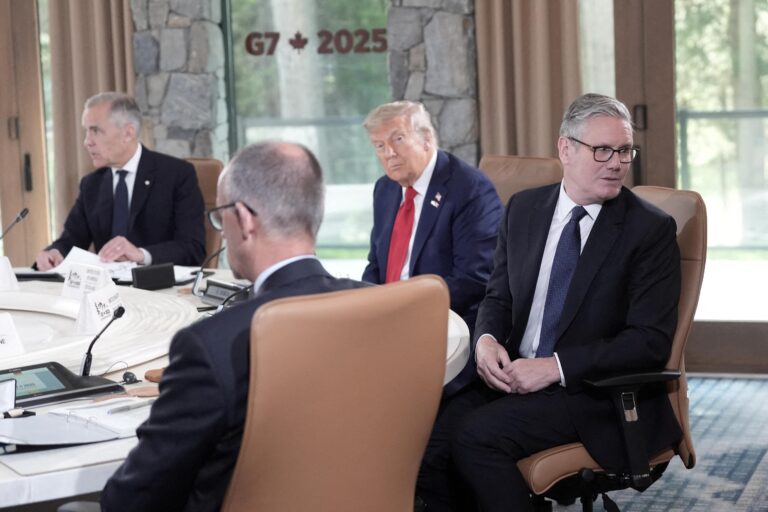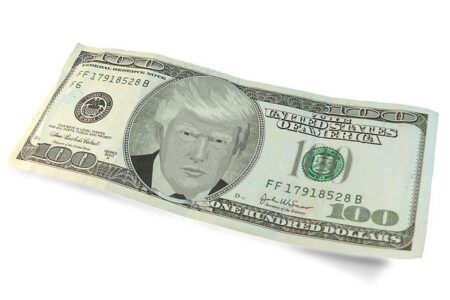The United States and the United Kingdom have officially announced a new trade agreement aimed at strengthening economic ties between the two nations. However, key aspects of the deal remain unresolved, with ongoing negotiations specifically focusing on steel imports. The announcement marks a significant step toward closer cooperation, though both governments acknowledge that critical details, particularly related to the steel sector, require further discussion before a final pact can be concluded.
US and UK Reach Preliminary Trade Agreement Marking New Era in Bilateral Relations
The United States and the United Kingdom have successfully taken a significant step forward in strengthening their economic ties with a preliminary trade agreement. This deal aims to reduce tariffs and enhance cooperation across multiple sectors, fostering greater market access for businesses on both sides of the Atlantic. Key areas covered include technology exchange, agricultural exports, and financial services, signaling increased collaboration and competitiveness in an evolving global economy.
However, critical aspects such as steel imports remain subjects of ongoing negotiations. Both governments acknowledge the sensitive nature of the steel industry, reflecting domestic priorities and the complexities of international trade policies. Outstanding issues under discussion include:
- Quota limits and tariffs for steel products
- Safeguards against market distortions
- Environmental standards compliance
| Sector | Current Status | Next Steps |
|---|---|---|
| Technology | Agreement Reached | Implementation Phase |
| Agriculture | Tariff Reductions | Monitoring & Review |
| Steel Imports | Negotiations Ongoing | Further Talks Scheduled |
Steel Import Tariffs Remain Contentious Point in Ongoing Trade Negotiations
The newly forged trade agreement between the US and UK marks a significant milestone in transatlantic economic relations. However, steel import tariffs remain a major sticking point, threatening to overshadow broader cooperation efforts. American steel producers continue to advocate for protective measures, citing national security concerns and the need to safeguard domestic jobs against an influx of cheaper foreign steel. Meanwhile, British officials emphasize the importance of keeping tariffs low to maintain competitive supply chains and support their own manufacturing sectors.
Negotiators are currently exploring a range of compromises to resolve the steel impasse. Key considerations include:
- Quota limits on steel imports to balance market access and protection
- Tiered tariff reductions based on product categories and origin
- Joint oversight mechanisms to monitor trade flows and prevent dumping
Below is a snapshot of proposed tariff rates under discussion:
| Steel Category | US Proposed Tariff | UK Response |
|---|---|---|
| Carbon Steel | 15% | 10% |
| Stainless Steel | 20% | 12% |
| Alloy Steel | 18% | 15% |
Experts Urge Pragmatic Approach to Resolve Steel Disputes and Strengthen Economic Cooperation
Industry specialists emphasize that resolving the ongoing disputes in the steel sector requires a balanced and pragmatic strategy. Both the US and UK have expressed commitment to fostering closer economic ties, yet the complex nature of steel import negotiations continues to challenge policymakers. Experts suggest that a combination of diplomatic dialogue, transparent tariff frameworks, and mutual concessions will be essential to pave the way for a sustainable resolution.
Key recommendations proposed by experts include:
- Implementing clear guidelines on steel quotas to prevent market imbalances
- Encouraging industry-level collaboration between steel producers across both nations
- Strengthening dispute resolution mechanisms through joint economic committees
| Aspect | US Position | UK Position |
|---|---|---|
| Tariff Approach | Maintaining selective tariffs | Seeking tariff reductions |
| Import Quotas | Advocating strict quotas | Favoring flexible limits |
| Dispute Resolution | Formal arbitration panels | Joint economic task force |
Wrapping Up
As the United States and United Kingdom move forward with their newly announced trade agreement, key issues such as steel import terms remain under careful negotiation. Both governments have emphasized their commitment to reaching a comprehensive deal that balances economic growth with industry protections. Stakeholders and analysts alike will be closely watching the ongoing discussions, which are expected to shape the future of transatlantic trade relations in the months ahead.




